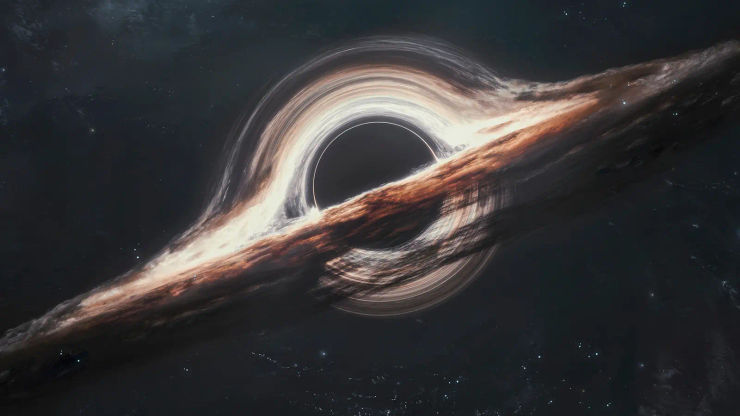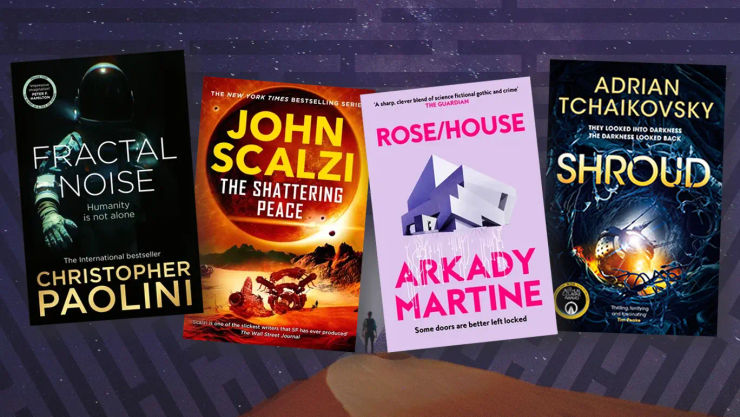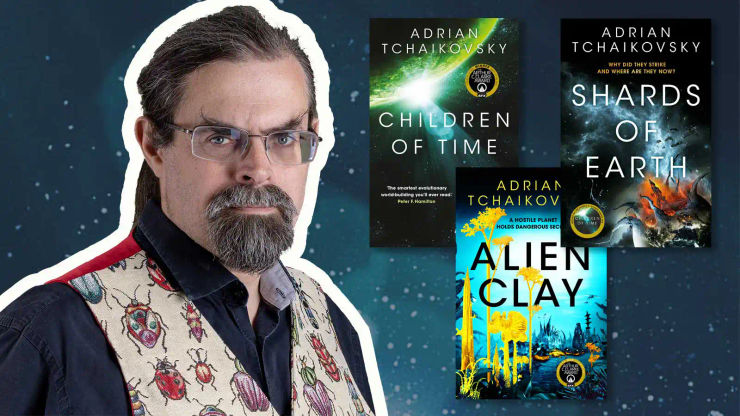Don't get lost in space: a guide to science fiction subgenres
What's the difference between hard and soft sci-fi? Am I reading a dystopia or post-apocalyptic fiction? Let David Green guide you through some of the major subgenres of science fiction.

Science fiction is, like the universe, ever-expanding, with a large and increasing number of subgenres to immerse yourself in. Definitively categorising a sci-fi novel is perhaps the real final frontier: boundaries shift more than the sands of Arrakis and opinions will always differ – that's part of the fun. We hope our guide to some of the main subgenres of science fiction offers a good place to start.
What is science fiction?
'That branch of literature which deals with the reaction of human beings to changes in science and technology,' according to prolific sci-fi writer, Isaac Asimov. Science fiction offers creative takes on real or speculative science and technology through its settings, themes, and plot.
Is sci-fi different from fantasy?
While many group fantasy in with sci-fi – you are sure to see signs reading ‘Science Fiction and Fantasy’ in bookshops around the globe – there is a clear distinction between the two. Science fiction deals primarily with science and technology that is or could be real, while fantasy is concerned mostly with the imaginary. For example, Harry Potter is fantasy, whereas Star Trek is science fiction; The Lord of the Rings is fantasy, and The Expanse is sci-fi.
What are the main types of science fiction? How many types of sci-fi are there?
Science fiction writing can usually be put into one of two main categories: hard science fiction, or soft science fiction.
Hard science fiction
Hard science fiction really drills into the details of the science and technology it's discussing to ensure a high-level of accuracy, and explores scientific concepts in great depth. Red Mars by Kim Stanley Robinson and Children of Time by Adrian Tchaikovsky are great examples of this.
Soft science fiction
Soft science fiction focuses more on human emotions and responses to science and technology, and/or is more concerned with sciences that govern matters of sociology, economy, ecology, and anthropology. Soft sci-fi is much less concerned with whether or not the science is correct. Frank Herbert’s Dune is a good example of soft science fiction, as it spends little time depicting the details of futuristic technology.
There are then many, many sub-genres of science fiction, some of which lend themselves particularly well to hard sci-fi, or to soft, and some which could come under either category, depending on how the author decides to approach the story and world-building, and what their tastes are.
Let's take a look at some of them. . .
Afrofuturism
Ytasha L. Womack, writing in her book, Afrofuturism: The World of Black Sci-Fi and Fantasy Culture, defines Afrofuturism as 'an intersection of imagination, technology, the future and liberation' while quoting Ingrid LaFleur who said Afrofuturism is, 'a way of imagining possible futures through a black cultural lens.' As such, Afrofuturism can explore many different types of science fiction – as seen in Marvel’s Black Panther – but in a way that is unique to black culture, philosophy, and in a way that explores the intersection of the African diaspora culture with science and technology.
Book suggestions
- Africa Risen, an anthology edited by Sheree Renée Thomas, Oghenechovwe Donald Ekpeki and Zelda Knight
- War Girls by Tochi Onyebuchi
- The Galaxy Game by Karen Lord
Apocalyptic and post-apocalyptic fiction
Apocalyptic and post-apocalyptic fiction both deal with the fall of society, or a whole world, with apocalyptic fiction exploring the build up and moment of collapse, and post-apocalyptic fiction, the aftermath. Popular across different media (hello Fallout and The Last Of Us), bookshops are no strangers to the apocalypse.
Book suggestions
Alternative history
Take some actual historical events, introduce a ‘what if?’ to proceedings and you have yourself an alternative history. One of the most famous examples comes, like so much science fiction, from Philip K. Dick, who imagines what might have happened had the Allies lost World War Two.
Book suggestion
- The Man In The High Castle by Philip K. Dick
Biopunk
Biopunk focuses on technology derived from biological roots like changes to human DNA and the merging of synthetic technology with the body.
Cyberpunk
The subgenre of low life and high tech. Set in dystopian near-futures, cyberpunk deals with scientific advancements such as artificial intelligence and cyberware against backdrops of societal collapse. Cyberpunk is sometimes confused with steampunk, but the latter is more often found in the realms of fantasy. However, like steampunk, the aesthetic of cyberpunk is vitally important – which explains its popularity in movies, video games, and table-top role-playing games.
Book suggestions
- Mindstar Rising by Peter F. Hamilton
- Neuromancer by Williams Gibson
- Ten Low by Stark Holborn
Dystopian fiction
Dystopian fiction deals with nightmarish societies, run unjustly – sometimes as a result of an apocalyptic event, but not necessarily. Dystopian themes can appear across a variety of science fiction subgenres (usually in the guise of Big Brother type corporations in cyberpunk, or as totalitarian empires).
Book suggestions
Kaiju
Kaiju, which means ‘strange creature’ in Japanese, has come to mean ‘giant monster’ in English. And by giant monster, we usually mean Godzilla. But there’s more than just the King of Monsters and friends when it comes to Kaiju, and there’s a booming bookish subgenre inspired by these terrifying creatures from the depths.
Book suggestions
- The Kaiju Preservation Society by John Scalzi
- Project Nemesis by Jeremy Robinson
Military science fiction
Military science fiction concerns itself with the matters of futuristic war. The advanced technology on show is mainly used in battle settings, and the cast of characters are, more often than not, from the military. Various future versions of the planet Earth are usually involved in the subgenre, as are the ramifications of political strife, fragile alliances, and the danger of over-reaching on an intergalactic scale.
Book suggestions

Trading In Danger: Vatta's War: Book One
Elizabeth Moon
Parallel universes
This subgenre explores the idea that other, sometimes very similar, worlds exist alongside – and sometimes interact with – our own. Unlike the alternative history subgenre, these alternate timelines don't have to be based around major historical events. Philip Pullman's His Dark Materials trilogy is a great example, although this also includes elements of fantasy. It could also be argued that all of Emily St. John Mandel's books can be read as parallel strands of each other.
Book suggestions
Science fiction horror
Science fiction horror is the subgenre of monstrous creations and terrifying aliens from outer space, and the playground of zombie outbreaks and the creepy unexplained. Ready for scientific things that go bump in the night?
Book suggestions
Space opera
Space opera is big, bold, and sweeping. The subgenre emphasises space warfare and melodrama, featuring risk-taking space adventures with plenty of page-time being given to character development. Mainly set in outer-space, space operas are usually set in the far-flung future, featuring alien species, and wars between intergalactic empires.
Book suggestions
Space western
Space westerns are usually soft science fiction, dealing with people living on the outskirts, or frontier, of an empire’s collection of planets. Focus is firmly on the rebels and rogues, with high-adventure and fun the order of the day. This subgenre’s biggest claim to fame is undoubtedly Star Wars, though the TV show Firefly has an army of fans, as does the movie follow-up Serenity.
Book suggestions
- Ten Low by Stark Holborn
- Leviathan Wakes by James S. A. Corey
Time travel
Are books about time travel a separate subgenre or simply all making use of the same device? We'll let others settle this debate, but this piece wouldn't complete if we didn't mention this stalwart of science fiction writing where, you guessed it, characters and creatures are able to move forwards and/or backwards in time.
Book suggestions
Looking for more? Discover our guide to the best science fiction books.

























